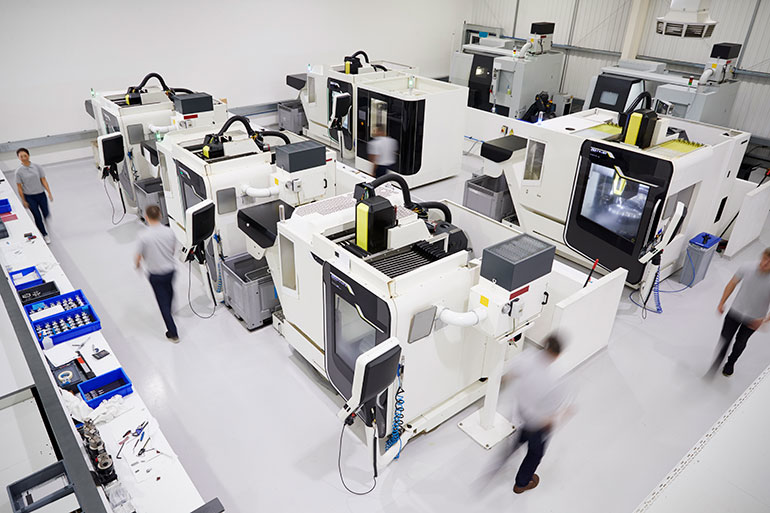

These systems depend on consistent data, sensors, connectivity that includes Industrial 5G, and the integration of shop-floor technologies in corporate information technology (IT). This is where new technologies come into play, especially autonomous self-learning systems that can immediately respond to changes and individual specifications with the help of artificial intelligence (AI). But when the manufactured products and their packaging are subject to frequent changes, current production concepts are pushed to their limits. The comprehensive automation of production steps allows machines to perform hundreds of thousands of repetitive tasks extremely efficiently, reliably, and economically. This change will apply to many types of products, including cars, machine tools, roller bearings, polyethylene terephthalate (PET) bottles, chemicals, and sugar cubes. In all industries, smart technologies based on comprehensive digitalization are going to ensure ever-greater flexibility and shorter innovation cycles, as well as products that are more customized, manufacturing processes that are more sustainable, and an ecological footprint that’s seamlessly transparent along the entire supply chain. Porsche’s innovative manufacturing is a model for future production. The time from the initial planning of the plant to production of the first car took a mere four years.

Instead, mobile automated guided vehicles (AGVs) convey the Taycans to various workstations on multiple floors, based on the equipment required. So Porsche dared to take a revolutionary step: it abandoned the assembly line. There also had to be a significant reduction in carbon emissions and resource consumption. Manufacturing had to be extremely flexible to quickly respond to changes and custom requirements. There wasn’t enough space at the Zuffenhausen headquarters for the new production facilities. The electric Taycan appeared only two years ago and is decidedly unusual for a sports car, with its electric drive, roominess, and floor covering made of recycled fishnets.īut what was most unusual was the planning and implementation of production. At that time, Porsche had sold 28,640 Taycan models in a year-about 700 more than the flagship 911, which the carmaker has produced in quantities reaching millions over the course of six decades and eight generations of models. The message was startling: “Porsche’s electric Taycan overtakes the classic 911.” That headline appeared in October 2021 in the German weekly Der Spiegel. But in order to become more widely used, it has to be industrial-grade. Artificial intelligence (AI) is becoming one of the most important enablers of autonomous systems.


 0 kommentar(er)
0 kommentar(er)
